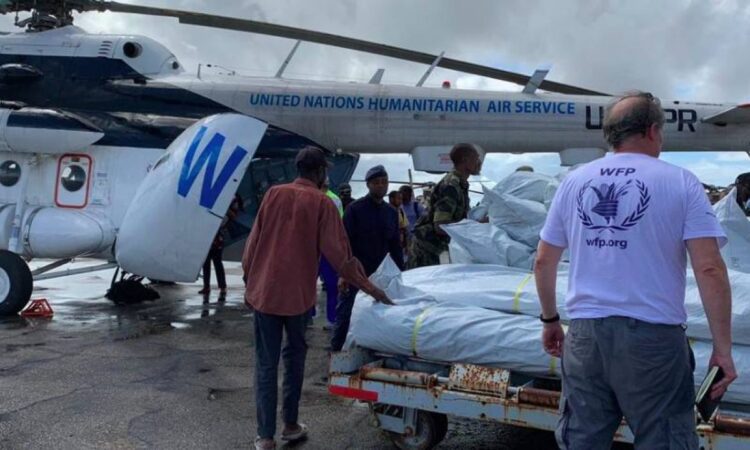By Tony O’Riley-
The prestigious 2020 Nobel Peace Prize has been awarded to the United Nations World Food Programme (WFP) for its efforts to combat hunger.
The winner was announced at the Norwegian Nobel Institute in Oslo. The Norwegian Nobel Committee said the WFP had acted “as a driving force in efforts to prevent the use of hunger as a weapon of war and conflict”.
The decision to award the Nobel Peace Prize for 2020 to the World Food Programme (WFP) was for its efforts to combat hunger, for its contribution to bettering conditions for peace in conflict-affected areas and for acting as a driving force in efforts to prevent the use of hunger as a weapon of war and conflict.
The World Food Programme (WFP) provided assistance to close to 100 million people in 88 countries who are victims of acute food insecurity and hunger. In 2015, eradicating hunger was adopted as one of the UN’s Sustainable Development Goals.
In the face of the pandemic, the World Food Programme demonstrated an impressive ability to intensify its efforts to countries such as Yemen, the Democratic Republic of Congo, Nigeria, South Sudan and Burkina Fasco where violent conflict added to the pandemic led to a dramatic rise in the number of people living on the brink of starvation.
Medical Vaccine
As the organisation itself has stated, “Until the day we have a medical vaccine, food is the best vaccine against chaos.”
The world is in danger of experiencing a hunger crisis of inconceivable proportions if the World Food Programme and other food assistance organisations do not receive the financial support they have requested.
Stability And Peace
The Norwegian Nobel Committee said it wishes to emphasise that providing assistance to increase food security not only prevents hunger, but can also help to improve prospects for stability and peace. The World Food Programme has taken the lead in combining humanitarian work with peace efforts through pioneering projects in South America, Africa and Asia.
A WFP spokesman described the award as a “proud moment”. The prize is worth 10m Swedish krona ($1.1m; £872,600). The WFP estimates it helps about 97 million people a year, in 88 countries.
“With this year’s award, the [Committee] wishes to turn the eyes of the world to the millions of people who suffer from or face the threat of hunger,” said Norwegian Nobel Committee chairwoman Berit Reiss-Andersen. “The World Food Programme plays a key role in multilateral cooperation in making food security an instrument of peace.”
Nobel Prizes are awarded in several categories to people “who have conferred the greatest benefit to humankind” in the previous 12 months.
The Nobel Peace Prize last year went to Ethiopian Prime Minister Abiy Ahmed, whose peace deal with Eritrea ended a 20-year military stalemate following their 1998-2000 border war.
”With this year’s award, the Norwegian Nobel Committee wishes to turn the eyes of the world towards the millions of people who suffer from or face the threat of hunger”, the organisation said. It added that ”The World Food Programme plays a key role in multilateral cooperation on making food security an instrument of peace, and has made a strong contribution towards mobilising UN Member States to combat the use of hunger as a weapon of war and conflict.
Former US President Barack Obama won the prize in 2009, for “his extraordinary efforts to strengthen international diplomacy and co-operation between peoples”.
Other notable winners include former US President Jimmy Carter (2002); child education activist Malala Yousafzai (shared 2014); the European Union (2012); the United Nations and its secretary-general at the time, Kofi Annan, (shared 2001); and Mother Teresa (1979).
There are some years were nobody is considered worthy of winning the Nobel prize.




